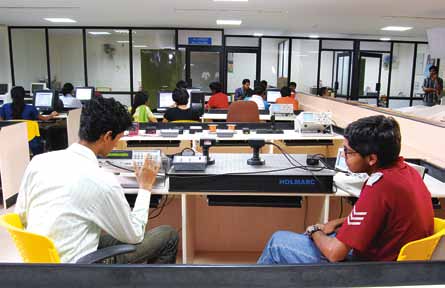
Digital signal processing (DSP) has two facets—hardware design and software algorithms and applications. Traditionally, India has been a power house of software and hence has a strong DSP software presence, believes Abhijit Giri, senior engineering manager, DSP, Analog Devices India. A number of young engineers develop optimised algorithms in India.
Giri says, “In DSP software domain, there are companies which develop either off-the-shelf DSP software IPs such as various multimedia and communication codec modules, or provide system integration services to OEMs.”
Talking about hardware, he adds, “Analog Devices have strong DSP design presence coupled with ownership to improve the performance and take hardware to the next level to enable software engineers to develop better algorithms providing better customer experiences. With combined hardware and software developments, I believe that DSP is a great domain poised to provide good opportunities for engineers in India.”
Explaining why the DSP domain is growing and has a bright future in India, Rajeev Kaushal, general manager-product engineering services, eInfochips, says, “There are more than a hundred organisations dealing with DSP and more than 20 companies specially focused on the DSP domain in India. It is a very niche market. Today, there is a lot of requirement related to DSP in the defense vertical. It is a domain that is growing very well in India.”
He feels that in the coming days, there will be lots of projects and career opportunities in DSP domain in India.
Scope
“DSP technology finds a number of applications,” informs Kantheti Srinivas, director-product applications and systems engineering, Analog Devices India. Audio systems, car infotainment systems, handsets, cellular communications, telecommunications, and medical imaging and diagnostics are just a few examples that touch the common man’s life every day. With rapid evolution of these technologies, the opportunities only continue to grow.
[stextbox id=”info” caption=”Suggestions from industry experts”]
“For a software and systems engineer, key skills needed are sound mathematics, signal processing concepts, digital systems followed by strong programming skills. Hardware designers should have skills related to semiconductor design, architecture focused on improved performance, power optimisation, etc”
—Kantheti Srinivas, director-product applications and systems engineering, Analog Devices India
“Those interested in pursuing a career in DSP should have studied at least one DSP processor architecture. In addition, they should be conversant in ‘C’ language and Assembly language programming, and familiar with software optimisation methodologies. Also, a module on DSP cores is included in electronics engineering courses. In case you have not studied DSP cores, many colleges offer short-courses in embedded systems and DSP programming. It is advisable that you enroll in such a course”
—Subodh Shukla, Engineering Group Director, Cadence Design Systems (India)
“Some basic to intermediate-level courses in digital signal processing/processors are offered by Cranes. These courses are authorised by companies like Texas Instruments. There are some courses offered by M.S. Ramaiah School and IISC as well”
—Sunil Kshatri, AVP, human resources, Sasken
[/stextbox]
Srinivas says, “With all major OEMs having design and development centres in India, I believe the job scenario in DSP and associated systems is very good.” “DSP is a specialised field in high technology. So work in this domain rates high in job satisfaction,” he adds.
“In the wireless and media space, DSP skills are needed in two areas—codecs development and optimisation, and physical-layer development,” informs Milind Gandhe, business line head, semiconductor & silicon platforms, Sasken.
He says, “Demand for codec development and optimisation is now declining, but the demand for physical layer (Layer 1) development is quite high. These are niche areas and there are not too many experts available with these skills. As a result, the career prospects are quite bright.”
“With the rise of DSP related applications in today’s electronics, a natural consequence is increasing work in the field of DSP,” believes Subodh Shukla, engineering group director, Cadence Design Systems (India). There is substantial amount of DSP in most of the commonly used devices like cell phones, DVD/CD players, portable music devices and TVs.
He says, “There is a lot of DSP work happening in India. Historically, India has a long tradition of DSP—when the first semiconductor companies approached India over 20 years ago, the teams were involved in DSP. Over the years, India has built up expertise in DSP, which is recognised globally. Therefore a lot of the outsourced work to India in embedded systems/chip design area is in DSP.”
Also, with IT booming in India, there is a lot of demand for jobs in the DSP field in India, believes Jiju George, director-human resources at Broadcom. He informs, “The scope of career in this field would be in sectors such as defense, telecom, multimedia, medical instrumentation, low-cost smart devices, space and aviation, consumer electronics, automotive and safety products.”







